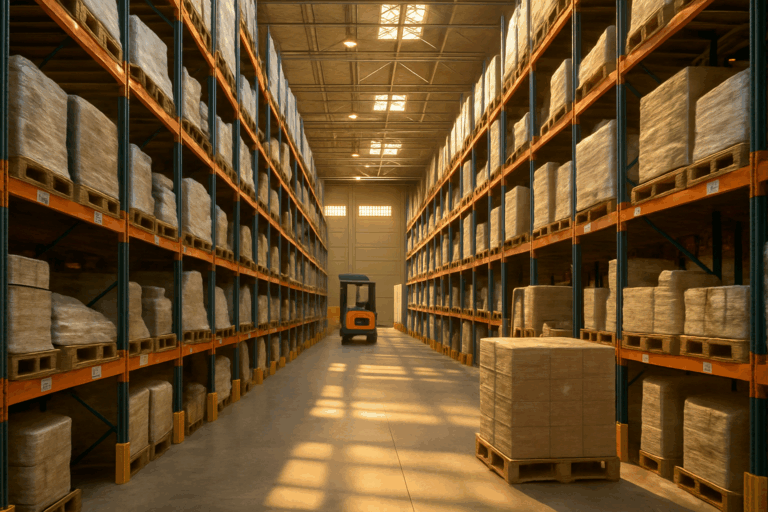Brazil’s journey to becoming a major oil exporter has been marked by significant investments in offshore drilling technology and the discovery of vast pre-salt oil reserves. What helped transform Brazil into a major oil exporter was a combination of innovative extraction techniques and the strategic development of its oil industry. Additionally, the government’s supportive policies and partnerships with international energy companies played a crucial role in this transformation.
What helped transform Brazil into a major oil exporter was the integration of advanced technological solutions, such as deepwater drilling and seismic imaging, which enabled the exploitation of previously inaccessible oil reserves. Regulatory reforms, including the establishment of a competitive bidding process and favorable tax incentives, attracted significant foreign investment. Strategically, Brazil’s state oil company, Petrobras, played a critical role by spearheading exploration and production efforts, thereby positioning the country as a key player in the global oil market.
Table of Contents
ToggleKey Takeaways
- Discovery of vast pre-salt oil reserves
- Adoption of advanced exploration and extraction technologies
- Strategic partnerships with international oil companies
- Regulatory reforms fostering a favorable investment climate
- Proactive measures to address environmental concerns
- A balanced approach to oil exports and renewable energy development
Discovering the Pre-salt Layer

Unlocking Brazil’s Offshore Potential
The discovery of the pre-salt layer, a geological formation rich in high-quality oil reserves located deep beneath the ocean floor. This discovery significantly increased Brazil’s proven oil reserves, positioning the country among the top oil producers globally. The pre-salt finds not only boosted Brazil’s production capacity but also attracted substantial foreign investment and technological expertise, further enhancing the country’s oil industry capabilities.
Technological Advances in Deepwater Drilling
The groundbreaking innovations in exploration and extraction technologies, are particularly suited for deepwater and ultra-deepwater environments. Advances such as enhanced seismic imaging, floating production storage and offloading units (FPSOs), and specialized drilling rigs enabled efficient operations in the challenging pre-salt layer. These technological developments allowed Brazil to overcome significant geological and operational challenges, ensuring the effective tapping of its vast offshore oil reserves.
Petrobras and the Drive for Oil Export
Petrobras: Spearheading Exploration and Production
The pivotal role played by Petrobras, the state-owned oil company, in spearheading the country’s oil sector development. Petrobras invested heavily in research and development, particularly in deepwater drilling technologies, which were crucial for accessing the pre-salt oil reserves. The company’s strategic initiatives, including partnerships with international oil firms and significant investments in infrastructure, enabled Brazil to rapidly expand its oil production and export capabilities.
Investments in Infrastructure and FPSO Units
The adoption of floating production storage and offloading units (FPSOs), revolutionized offshore oil production. FPSOs allowed for the efficient extraction, processing, and storage of oil directly at sea, bypassing the need for extensive pipeline infrastructure. This innovation not only reduced costs and logistical challenges but also significantly boosted Brazil’s oil export capacity by enabling continuous production even in remote and deepwater locations.
Regulatory and Policy Frameworks
Reforms in the Brazilian Oil Sector
Key regulatory changes that created a more attractive investment climate for international companies. The government implemented reforms such as the introduction of a competitive bidding process for oil exploration blocks and the establishment of favorable tax incentives and royalty frameworks. These measures encouraged foreign investment and facilitated strategic partnerships, bringing in the necessary capital, technology, and expertise to develop Brazil’s vast oil resources effectively.
The Role of ANP in Regulating Oil Activities
The proactive role of the National Agency of Petroleum, Natural Gas and Biofuels (ANP) in regulating and promoting the oil sector. The ANP established a transparent and competitive framework for licensing oil exploration and production, which attracted significant foreign investment. Additionally, the agency’s efforts in monitoring compliance, ensuring safety standards, and fostering innovation created a stable and efficient environment that facilitated the growth and success of Brazil’s oil industry.
Strategic Partnerships and Global Integration

Brazil-China Oil Trade Relations
The strategic partnerships forged with international oil companies, played a crucial role in expanding the country’s oil export market. These partnerships brought in expertise, technology, and capital essential for developing Brazil’s offshore reserves and building infrastructure. By leveraging the strengths of both domestic and international entities, Brazil was able to accelerate its oil production and strengthen its position as a key player in the global oil market.
Brazil’s Position in the Global Oil Market
Its strategic approach to trade agreements and interactions with OPEC. By diversifying its export destinations through trade agreements with various countries, Brazil reduced its dependency on any single market, enhancing its resilience to fluctuations in demand. Additionally, engaging with OPEC allowed Brazil to gain insights into global oil market dynamics and coordinate production strategies, ensuring stability and competitiveness in its oil export strategy.
Environmental and Economic Impacts

Sustainable Practices in Oil Exploration
Its proactive approach to addressing environmental concerns associated with offshore drilling. The country implemented stringent regulations and safety standards to mitigate the risk of oil spills and protect marine ecosystems. Additionally, Brazil invested in research and technology to develop advanced monitoring systems and response capabilities, ensuring quick and effective responses to any environmental incidents. By prioritizing environmental sustainability, Brazil demonstrated its commitment to responsible oil production and earned the confidence of global markets.
Economic Benefits of Becoming an Oil Exporter
The profound impact of oil exports on the country’s economy and energy sector. Revenue from oil exports fueled economic growth, driving investment in infrastructure, education, and social programs. Moreover, the emergence of Brazil as a significant player in the global oil market bolstered the country’s energy security and diversified its energy mix. This transformation has not only enhanced Brazil’s geopolitical influence but also positioned it as a key player in shaping the future of the global energy landscape.
Future Prospects and Challenges

Innovations in Renewable Energy and Biofuels
The commitment to balancing oil exports with the development of sustainable energy sources. While leveraging its oil reserves for export revenue, Brazil has also made significant investments in renewable energy, such as hydropower, wind, and biofuels. This diversified energy portfolio not only reduces dependence on fossil fuels but also mitigates environmental impact, positioning Brazil as a leader in sustainable energy production. By striking this balance, Brazil ensures long-term economic growth while promoting environmental stewardship and energy security.
Navigating Global Oil Prices and Market Demand
Challenges include navigating fluctuations in global oil prices, technological advancements, and geopolitical tensions that impact market dynamics. However, Brazil also has opportunities to further develop its oil industry through continued investment in exploration, production efficiency, and infrastructure. Additionally, diversifying export markets and expanding into renewable energy sectors present avenues for sustainable growth and resilience. By addressing these challenges and capitalizing on opportunities, Brazil can sustain its position as a key player in the global oil market.
Conclusion
These include the discovery of vast pre-salt oil reserves, which significantly boosted the country’s production capacity, coupled with the adoption of cutting-edge technologies for exploration and extraction. Strategic partnerships with international oil companies and regulatory reforms created a favorable investment climate, while proactive measures to address environmental concerns ensured sustainable growth. With a balanced approach to oil exports and renewable energy development, Brazil has solidified its position as a major player in the global oil market, driving economic growth and energy security.
FAQs
What makes the pre-salt layer in Brazil unique in the global oil industry?
The pre-salt layer in Brazil is unique in the global oil industry due to its vast reserves of high-quality oil located deep beneath the ocean floor. This geological formation presents significant challenges but also offers immense potential for production, making it a focal point for Brazil’s oil industry growth.
How did technological advancements contribute to Brazil’s oil export boom?
Technological advancements have played a crucial role in Brazil’s oil export boom by enabling efficient exploration and extraction of oil reserves, particularly in challenging deepwater environments like the pre-salt layer. Innovations such as advanced seismic imaging, deepwater drilling technologies, and floating production systems have contributed to Brazil’s ability to access and exploit its offshore oil resources effectively.
What are the main challenges Brazil faces in sustaining its oil export growth?
The main challenges Brazil faces in sustaining its oil export growth include fluctuations in global oil prices, technological limitations in extracting oil from complex reservoirs like the pre-salt layer, and environmental concerns surrounding offshore drilling. Additionally, Brazil must contend with competition from other oil-producing nations and the need for continuous investment in infrastructure and technology to maintain production levels.
How do Brazil’s environmental policies align with its oil export ambitions?
Brazil’s environmental policies align with its oil export ambitions through a focus on sustainability and responsible resource management. The country has implemented stringent regulations to minimize the environmental impact of oil exploration and production activities, including measures to prevent oil spills, protect marine ecosystems, and promote the use of cleaner technologies.
What role does Petrobras play in Brazil’s renewable energy initiatives?
Petrobras, Brazil’s state-owned oil company, plays a significant role in the country’s renewable energy initiatives through investments in biofuels, wind, and solar energy projects. As part of its diversification strategy, Petrobras has expanded its portfolio to include renewable energy sources, contributing to Brazil’s efforts to reduce its dependence on fossil fuels and mitigate climate change.



























